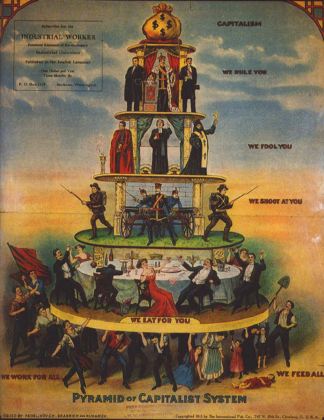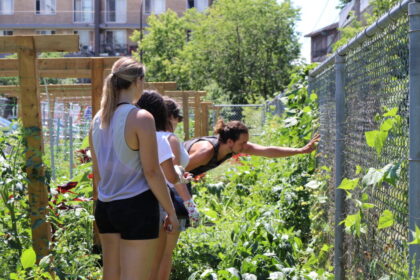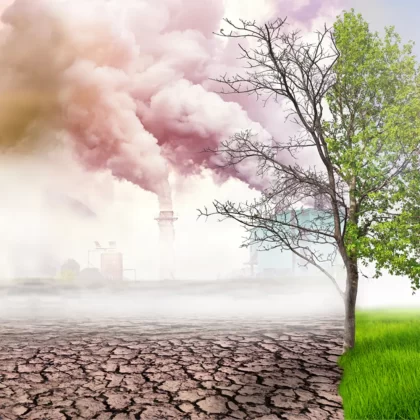
Description
Class time: Tuesday, 2:45 – 5:30
Classroom: H-1271
Office: H-1125.12
Office Hours: Monday & Wednesday from 2:45 – 4 (by request)
| I M P O R T A N T D A T E S | |||
| Last day to register: | January 21st, 2019 | ||
| Last day to withdraw (refund): | January 21st, 2019 | ||
| Last day to discontinue (no refund): | March 18th, 2019 | ||
| MIDTERM BREAK Monday February 25th – Sunday March 3rd 2019 | |||
| Last day of in-class testing: | April 6th, 2019 | ||
| Final exams: | April 16th – May 5th2019 | ||
| Travel arrangements should not be made prior to the posting of the final Exam Schedule. | |||
Course Description: URBS/GEOG 450 Economic Restructuring (3 credits)
This course examines the nature of firm restructuring in late capitalism and the implications that industrial restructuring trends are having for the geography of industries, the structure of firms, workplace relations and workers’ rights. It examines the new challenges that restructuring presents for both economic development prospects and labour market policies, as well as looks at contemporary initiatives to promote more socially and environmentally sustainable development paths.
In the course, students will learn how to critically analyze leading theories about political, economic and social relations by reading relevant literature as well as discussing and debating these topics with fellow classmates. We will focus on themes related to labour, capitalism, alternatives to capitalism, theories of transition, ecological economies, diverse economies, alternative markets, among others. Students will take action by creating a community project and/or by joining and enhancing a project that already exists. This will allow students to gain direct experience in creating alternative/non-capitalist enterprises as well as experiment with post-capitalist methods by applying what they learn in class to a project they develop. Hopefully, some of these experiments will become viable community projects that continue to sustain even after the course is done. Students will report about their project by publishing a summary of the project on the website www.postcapitalistpossibilibies.org. These reports will provide information about the project for anyone who is interested in perpetuating the project once the course is done. It will also provide a first-hand account of what can be possible in the realm of post-capitalist development – students may discover new ways to create sharing networks over and above what has already been discovered. Students will attend conferences and/or meetings that take place in the community and write blog posts that will be posted on the post-capitalist possibilities website. This will give students insight about how democratic organizations function and provide an opportunity to learn new skills. Furthermore, the blogposts will inform the community about what is happening in their neighborhoods. Students will critically evaluate their own roles as political, social and economic agents by recognizing and evaluating their own consumption habits, environmental footprint, labour practices, community involvement, and/or political participation.
Required Books:
Students are expected to complete ALL the required readings BEFORE EACH CLASS. Students are also expected to attend ALL classes and participate in class discussions.
Olin Wright, E. (2010) Envisioning Real Utopias, Verso
Roelvink, G., Martin, K. S., Gibson-Graham, J. K., (2015) Making Other Worlds Possible: Performing Diverse Economies, University of Minnesota Press
Brown and Timmerman (2015) Ecological Economics for the Anthropocene, Columbia University Press
Course Format:
This course consists of a variety of pedagogical styles including lectures, discussions, guest speakers, and/or community service learning (as part of the action research project). In class, students will participate in interactive activities, discussions and have occasional visits from community organizers. At times, the class will participate in fieldtrips on and off campus. Students will be notified in advance by e-mail and in class prior to these events. As of March 12th, students will lead seminars about the readings.
Course Schedule and Readings:
I reserve the right to make changes to the syllabus during the semester as necessary, with the goal of fully addressing class needs and improving your learning experience.
January 8th
Class 1 – Introduction
January 15th
Class 2 – Social, Political and Economic Systems
Required Readings:
Olin Wright, E. (2010) Envisioning Real Utopias, Verso
Chapter 1 – Introduction: Why Real Utopias? Pages 1 – 9.
Chapter 2 – The Task of Emancipatory Social Science. Pages 10 – 29.
Roelvink, G., Martin, K. S., Gibson-Graham, J. K., (2015) Making Other Worlds Possible: Performing Diverse Economies, University of Minnesota Press
Chapter 1 – Introduction: An Economic Politics for Our Time – Pages 1 – 25.
Recommended Readings:
Pearce, J. (2009) Social Economy: Engaging as a third system. In, Ash Amin, (2009) The Social Economy: International Perspectives on Economic Solidarity. Page 22 – 34.
Gibson-Graham, J.K., Cameron, J., Healy, S. (2013) Take Back the Economy: An Ethical Guide for Transforming Communities, University of Minnesota Press
Introduction – Take Back The Economy Why Now?
Chapter 1 Reframing the Economy, Reframing Ourselves – Page 1 – 15.
Polanyi, K. (2001) The Great Transformation; The Political and Economic Origins of Our Time, Beacon Press
Chapter 4 – Societies and Economic Systems
Wallerstein, I. (2004) World Systems Analysis; An Introduction. Duke University Press
Chapter 2 – The Modern World-System as a Capitalist World Economy; Production Surplus Value, and Polarization. Page 23 – 41.
Piketty, T. (2014) Capital in the Twenty First Century, The Presidents and Fellows of Harvard University
Chapter 1 – Income and Output – Page 39 – 71.
Marx, K. Capital Volume 1, Penguin Classics.
Chapter 4 – The General Formula for Capital. Page 249 – 256
Chapter 5 – Contradictions in the General Formula 257 – 269
January 22
Class 3 – Critiques of Capitalism?
Required Readings:
Olin Wright, E. (2010) Envisioning Real Utopias, Verso
Chapter 3 – What’s so Bad About Capitalism? – Page 34 – 85.
Recommended Readings:
Holloway, J. (2006) In, Against, and Beyond Capitalism: The San Francisco Lectures, PM Press
Harvey, D. (2011) The Enigma of Capital and the Crises of Capitalism, Profile Books LTD
Chapter 1 – The Disruption
Polanyi, K. (2001) The Great Transformation; The Political and Economic Origins of Our Time, Beacon Press
Chapter 5 – The Evolution of the Market Pattern
Chapter 6 – The Self-Regulating Market and Fictitious Commodities: Labour, Land, Money
Mason, P. (2016) Postcapitalism; A Guide to our Future, Farrar, Straus, and Giroux.
Chapter 1 – Neoliberalism is Broken – p. 3 – 30.
January 29
Class 4 – Alternatives to Capitalism – Thinking About Alternatives
Required Readings:
Olin Wright, E. (2010) Envisioning Real Utopias, Verso
Chapter 4 – Thinking About Alternatives to Capitalism. Pages 89 – 109
Chapter 5 – The Socialist Compass. Pages 110 – 149.
Recommended Readings:
Harvey, D. (2011) The Enigma of Capital and the Crises of Capitalism, Profile Books LTD
Chapter 8 – What is Going to be Done? And Who is Going to Do It?
Gibson-Graham, J.K. (2006) A Post-Capitalist Politics, University of Minnesota Press.
February 5th
Class 5 – Alternatives to Capitalism – Society and the State
Required Readings:
Olin Wright, E. (2010) Envisioning Real Utopias, Verso
Chapter 6 – Real Utopias 1: Social Empowerment and the State. Pages 150 – 190
Recommended Readings:
Dewey, J. (1954) The Public and its Problems, Swallow Press
Chapter 1 Search for the Public – Page 3 – 36.
Mill, J. S. (2002) On Liberty, Dover Publications.
Wallerstein, I (2004) World Systems Analysis; An Introduction. Duke University Press
Chapter 3 – The Rise of the Modern State System; Sovereign Nations, Colonies and the Interstate System. Page 23 – 41.
Albert, M (2003) Parecon; Life Aster Capitalism, Verso
Various Excerpts
Wolff, R. (2012) Democracy at Works: A Cure for Capitalism, Haymarket Books
Chapter 9 – Economic and Political Democracy, 145 – 155
February 12th
Class 6 – Alternatives to Capitalism – Firms, Labour and the Economy
Required Readings:
Olin Wright, E. (2010) Envisioning Real Utopias, Verso
Chapter 7 – Real Utopias 2: Social Empowerment and the Economy. Pages 191 – 268
Recommended Readings:
Gibson-Graham, J.K., Cameron, J., Healy, S. (2013) Take Back the Economy: An Ethical Guide for Transforming Communities, University of Minnesota Press
Chapter 2 – Take Back Work – Page 17 – 48.
Srnicek, N. & Williams, A. (2016) Inventing the Future; Post-capitalism and a World Without Work, Verso
Chapter 5- The Future isn’t Working. Page 85 – 105
Wolff, R. (2012) Democracy at Works: A Cure for Capitalism, Haymarket Books
Chapter 6 – What Self-Directed Means. Page 115 – 137.
Srnicek, N. & Williams, A. (2016) Inventing the Future; Post-capitalism and a World Without Work, Verso
Chapter 6 – Post-Work Imaginaries. Page 106 – 127.
De Angelis, M. (2014) Social Revolution and the Commons.” South Atlantic Quarterly, 113 (2), pp 299 – 311.
Gibson-Graham, J.K., Cameron, J., Healy, S. (2013) Take Back the Economy: An Ethical Guide for Transforming Communities, University of Minnesota Press
Chapter 5 – Take Back Property – Page 125 – 158.
Dyer-Witheford, N, (2006) Species-Being and the New Commonism: Notes on an Interrupted Cycle of Struggles, The Commoner, No.11 http://www.commoner.org.uk/index.php?p=24
Pierre-Joseph Proudhon – What is Property? (Chapter 2 and 5)
http://www.marxists.org/reference/subject/economics/proudhon/property/
February 19th
Class 7 – Theories of Transformation
Required Reading:
Olin Wright, E. (2010) Envisioning Real Utopias, Verso
Chapter 8 – Elements of a Theory of Transformation. Pages 273 – 307.
Chapter 9 – Ruptural Transformation. Pages 308 – 320.
Recommended Reading:
De Angelis, M. (2003) Reflections on Alternatives, Commons and Communities, or, Building a New World from the Bottom Up,” The Commoner, No. 6, http://www.commoner.org.uk/deangelis06.pdf
Miller, E. (2015) Anticapitalism or Postcapitalism? Both!, Rethinking Marxism, 27: 3, pp. 364 – 367.
Miller, E. (2010) Solidarity Economy: Key Concepts and Issues, In Solidarity Economy 1: Building Alternatives for People and Planet.
Gibson-Graham, J.K. (2006) Chapter 5: Surplus Possibilities: The Intentional Economy of Mondragón” in Postcapitalist Politics, Minesota, http://www.spacesofcommoning.net/wp-content/uploads/2014/05/GIBSON_GRAHAM_Postcapitalist_Politics.pdf
Shutt, Harry (2010). Beyond the Profit System. Possibilities for a Post-Capitalist Era, Zed Books
Various Excerpts
Restakis, John (2010). Humanizing the Economy. New Society Publishers.
Various Excerpts
March 5th
Class 8 – Theories of Transformation
Required Readings:
Olin Wright, E. (2010) Envisioning Real Utopias, Verso
Chapter 10 – Interstitial Transformation. Page 321 – 336.
Chapter 11 – Symbiotic Transformation. Page 337 – 365.
Chapter 12 – Conclusion: Making Utopias Real. Pages 366 – 373.
Recommended Readings:
Gibson-Graham, J.K., Cameron, J., Healy, S. (2013) Take Back the Economy: An Ethical Guide for Transforming Communities, University of Minnesota Press
Chapter 6 – Take Back Finance. Page 159 – 188.
Stiglitz, J. (2010) Freefall: America, Free Markets, and The Sinking World Economy, W.W. Norton & Company
Bookshin, M. (2007) Social Ecology and Communalism, AK Press.
Chapter 1 – What is Social Ecology? Page 19 – 52.
Harvey, D. (2014) Seventeen Contradictions and the End of Capitalism, Oxford University Press
Holloway, J. (2010) Crack Capitalism, Pluto Press.
Economy of Right Relationship Constrained by Global Ecological Limits (by Garver, G., and Goldberg, M)
Wittman, H., Desmarais, A. A., Wiebe, N. (2011) Food Sovereignty in Canada; Creating just and sustainable food systems.
Chapter 1 – Nurturing Food Sovereignty in Canada. Page 1 – 15.
Bookshin, M. (2007) Social Ecology and Communalism, AK Press.
March 12th
Class 9 – Student Led Seminar
Students will choose a chapter from one of the following books to present to the class and lead a discussion:
Roelvink, G., Martin, K. S., Gibson-Graham, J. K., (2015) Making Other Worlds Possible: Performing Diverse Economies, University of Minnesota Press
Brown and Timmerman (2015) Ecological Economics for the Anthropocene, Columbia University Press
March 19th
Class 10 – Student Led Seminar
Students will choose a chapter from one of the following books to present to the class and lead a discussion:
Roelvink, G., Martin, K. S., Gibson-Graham, J. K., (2015) Making Other Worlds Possible: Performing Diverse Economies, University of Minnesota Press
Brown and Timmerman (2015) Ecological Economics for the Anthropocene, Columbia University Press
March 26th
Class 11 – Student Led Seminar
Students will choose a chapter from one of the following books to present to the class and lead a discussion:
Roelvink, G., Martin, K. S., Gibson-Graham, J. K., (2015) Making Other Worlds Possible: Performing Diverse Economies, University of Minnesota Press
Brown and Timmerman (2015) Ecological Economics for the Anthropocene, Columbia University Press
April 2nd
Class 12 – Student Led Seminar
Students will choose a chapter from one of the following books to present to the class and lead a discussion:
Roelvink, G., Martin, K. S., Gibson-Graham, J. K., (2015) Making Other Worlds Possible: Performing Diverse Economies, University of Minnesota Press
Brown and Timmerman (2015) Ecological Economics for the Anthropocene, Columbia University Press
April 9th
Class 13 – Student Led Seminar
Students will choose a chapter from one of the following books to present to the class and lead a discussion:
Roelvink, G., Martin, K. S., Gibson-Graham, J. K., (2015) Making Other Worlds Possible: Performing Diverse Economies, University of Minnesota Press
Brown and Timmerman (2015) Ecological Economics for the Anthropocene, Columbia University Press
Reading Responses: Students will be expected to submit 5 total one-page (250-350 word) responses to one of the assigned readings (chapters) from January 15th to March 5th. Students will be evaluated based upon their ability to analyze the text critically. Each response will be given a grade out of 2. You will be evaluated on how well you: a) identify the central claim or thesis of the text and articulate it in our own words; b) identify the supporting evidence for the claim and the key concepts introduced; and c) relate the text to other examples that support or contradict the central claim or thesis – this can come from other texts, documentaries, research or valid examples. Don’t base your claims on conjecture.
Blog Posts: Students will write three blog posts of about 600 words for the www.postcapitalistpossibilities.org website. For the first blog post, students must attend a conference organized by a community group or a political action and write about the conference/action. For the second blog post, students must interview a community group and make their findings available via the blog. For the third blog post, students will produce a brief research report (with five sources) about a post-capitalist topic or can suggest an alternative topic that is approved by me (Erik Chevrier). Blog posts must critically analyze the topic in a clear, concise, informative, and interesting manner and should link the topic/conference/interview to the class readings. The blog must address an appropriate audience and make sure the information is conveyed to this audience based on their level of knowledge of the subject matter. Each blog post is worth 5% each. Students with video production skills can produce a video instead of a blog, however this must also be approved by me (Erik Chevrier).
Student-led seminar: Beginning on March 12th students will lead a seminar in groups of two. They will choose a chapter from the books ‘Ecological Economics for the Anthropocene’ or ‘Making Other Worlds Possible: Performing Diverse Economies’. Students will be evaluated on their ability to identify the central claim or thesis of the text and articulate it in our own words, synthesize the readings in a clear, informative manner, lead a discussion about the chapter and provide examples and/or case studies that support or contradict the arguments put forth in the chapter they are presenting. Students should also relate the material to the required and/or recommended readings occurring before March 12th.
Participation: With regards to the participation grade, you will receive 5 out of 10 points for attending all the classes. The remainder of the grade is based on your involvement in discussion and participation in classroom activities.
Action Research Project: Students will create a community project, get involved with an existing project to enhance the community or produce a traditional research report about a post-capitalist project. Students who choose to create a project or get involved with an already existing project will be graded on their work within the project, their ability to make a meaningful impact in the community, and a statement linking the course material to the project they worked on. Students who choose to perform a traditional research report will be expected to incorporate at least twenty external sources and produce a statement linking the report to the course material. Students are encouraged to work in groups, however the statement linking the project to the course material MUST be submitted individually and MUST be original (not copied of fellow classmates). The parameters of the project and grading rubric will be disseminated to the class on a separate paper that will be distributed in class.
Handing in Assignments:
All assignments MUST be submitted in HARD COPY at the beginning of class on the due date. Assignments received by e-mail will not be graded. Unless you are given permission in advance, late assignments will not be accepted without adequate documentation of medical or personal emergencies.
Students with Disabilities: The University’s commitment to providing equal educational opportunities to all students includes students with disabilities. To demonstrate full respect for the academic capacities and potential of students with disabilities, the University seeks to remove attitudinal and physical barriers that may hinder or prevent qualified students with disabilities from participating fully in University life. Please see the instructor during the first class if you feel you require assistance.
For more information please visit http://concordia.ca/offices/acsd
Safe Space Classroom: Concordia classrooms are considered ‘safe space classrooms’. In order to create a climate for open and honest dialogue and to encourage the broadest range of viewpoints, it is important for class participants to treat each other with respect. Name-calling, accusations, verbal attacks, sarcasm, and other negative exchanges are counter-productive to successful teaching and learning. The purpose of class discussions is to generate greater understanding about different topics. The expression of the broadest range of ideas, including dissenting views, helps to accomplish this goal. However, in expressing viewpoints, students should try to raise questions and comments in ways that will promote learning, rather than defensiveness and feelings of conflict in other students. Thus, questions and comments should be asked or stated in such a way that will promote greater insight into the awareness of topics as opposed to anger and conflict. The purpose of dialogue and discussion is not to reach a consensus, nor to convince each other of different viewpoints. Rather, the purpose of dialogue in the classroom is to reach higher levels of learning by examining different viewpoints and opinions with respect and civility.
I acknowledge that Concordia University is located on unceded Indigenous lands. The Kanien’kehá:ka Nation is recognized as the custodians of the lands and waters on which we gather today. Tiohtiá:ke/Montreal is historically known as a gathering place for many First Nations. Today, it is home to a diverse population of Indigenous and other peoples. We respect the continued connections with the past, present and future in our ongoing relationships with Indigenous and other peoples within the Montreal community. (Indigenous Directions Leadership Group, Feb. 16, 2017)
Grading System (Undergraduate calendar 16.3)
At the end of each course, the instructor will submit a letter grade for every student registered. Using the grade point equivalents listed below, grade point averages (GPA) are calculated for the evaluation of academic achievement, honours standing, prizes and academic standing. The numerical marking system, (which at Concordia is at the discretion of individual instructors/programs) applied in this course is as follows:
| Outstanding | Grade | Marks | Grade Points | Very Good | Grade | Marks | Grade Points | Satisfactory | Grade | Marks | Grade Points | Marginal Pass | Grade | Marks | Grade Points |
| A+ | 90-100 | 4.30 | B+ | 77-79.9 | 3.30 | C+ | 67-69.9 | 2.30 | D+ | 57-59.9 | 1.30 | ||||
| A | 85-89.9 | 4.00 | B | 73-76.9 | 3.00 | C | 63-66.9 | 2.00 | D | 53-56.9 | 1.00 | ||||
| A- | 80-84.9 | 3.70 | B- | 70-72.9 | 2.70 | C- | 60-62.9 | 1.70 | D- | 50-52.9 | 0.70 | ||||
| F, FNS | 20-49.9 | 0 | Poor – Failure | R | 0-19.9 | 0 | Very Poor – Failure | ||||||||
| NR | 0 | Grade Not Reported | GRADING SYSTEM | ||||||||||||
Please note that for 200 level courses, instructors in the Department of Geography, Planning and Environment reserve the right to adjust the final reported grades so that under normal circumstances no more than 25% of students registered in a course receive an outstanding grade (A-, A, A+).
Students should be aware of the following university regulations (see Undergraduate Calendar for complete details).
- Late Completion of courses with “INC” notations – Procedures and Regulations (Undergraduate Calendar 16.3.6)
- Academic Re-evaluation (Undergraduate Calendar 16.3.9)
- Degree Requirements for BA, BSc, BEd – 24 credit rule and general education requirements for students in degree programs offered by Faculty of Arts & Science (Undergraduate Calendar 31.003)
Cancellation of Classes
If no class cancellation notice is posted on the classroom door, classes are officially considered cancelled if an instructor is 15 minutes late for a 50-minute class, 20 minutes late for a 75-minute class, or 30 minutes late for longer classes.
ACADEMIC INTEGRITY:
Academic integrity means that every student must be honest and accurate in their work. The Academic Code of Conduct includes rules and regulations students must follow. Unacceptable practices include the following
- Copy from ANYWHERE without saying from where it came.
- Omit quotation marks for direct quotations.
- Let another student copy your work and then submit it as his/her own.
- Hand in the same assignment in more than one class without permission.
- Have unauthorized material in an exam, such as cheat sheets, or crib notes. YOU DON’T HAVE TO BE CAUGHT USING THEM – JUST HAVING THEM WILL GET YOU INTO TROUBLE!
- Copy from someone else’s exam.
- Communicate with another student during an exam by talking or using some form of signals.
- Add or remove pages from an examination booklet or take the booklet out of an exam room.
- Get hold of or steal an exam or assignment answers or questions.
- Write a test or exam for someone else or have someone write it for you.
- Hand in false documents such as medical notes, transcript or record.
- Falsify data or research results.
PLAGIARISM: The most common offense under the Academic Code of Conduct (see link below) is plagiarism, which the Code defines as “the presentation of the work of another person as one’s own or without proper acknowledgement.”
This could be material copied word for word from books, journals, internet sites, professor’s course notes, etc. It could be material that is paraphrased but closely resembles the original source. It could be the work of a fellow student, such as an answer on a quiz, data for a lab report, or a paper or assignment completed by another student. It could be a paper purchased through one of the many available sources. Plagiarism does not refer to words alone. It can also refer to copying images, graphs, tables, and ideas. Plagiarism is not limited to written work. It also applies to oral presentations, computer assignments and artistic works. Finally, if you translate the work of another person into French or English and do not cite the source, this is also plagiarism. In simple words: DO NOT COPY, PARAPHRASE OR TRANSLATE ANYTHING FROM ANYWHERE WITHOUT SAYING FROM WHERE YOU OBTAINED IT!
Take care to inform yourself of the rules, regulations and expectations for academic integrity.




